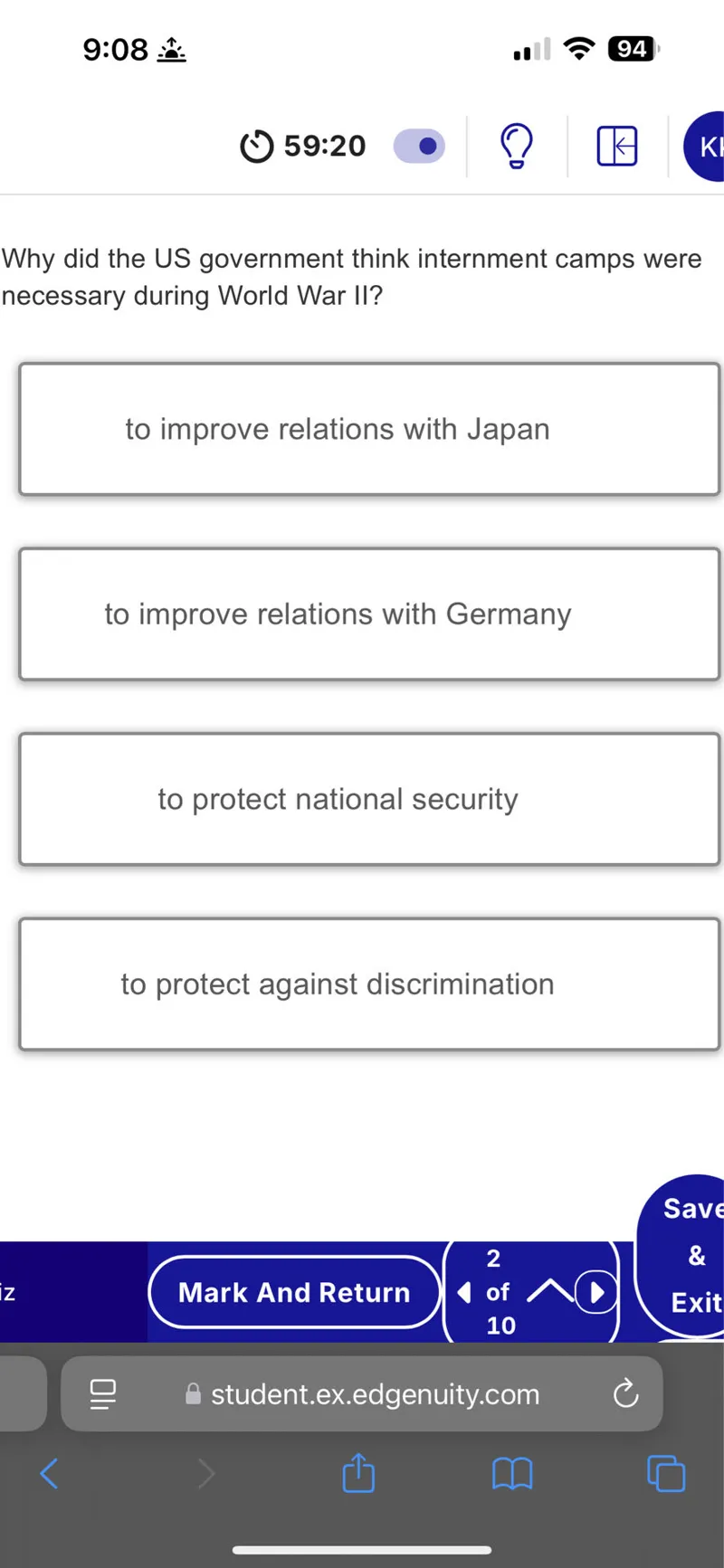The answer is to protect national security.
This option is incorrect. The internment of Japanese Americans during World War II was not intended to improve relations with Japan. In fact, it was a response to the attack on Pearl Harbor and the subsequent war with Japan, which led to increased suspicion and fear of Japanese Americans.
This option is incorrect. The internment camps were not related to improving relations with Germany. The camps primarily targeted Japanese Americans, although some German and Italian Americans were also interned. The focus was on perceived threats rather than diplomatic relations.
This option is correct. The US government justified the internment of Japanese Americans as a measure to protect national security. Following the attack on Pearl Harbor, there was widespread fear and suspicion that individuals of Japanese descent might act as spies or saboteurs for Japan. Executive Order 9066, signed by President Franklin D. Roosevelt, authorized the forced relocation and internment of Japanese Americans, citing national security concerns.
This option is incorrect. The internment camps were not established to protect against discrimination. In fact, the internment itself was a discriminatory act based on race and ethnicity, as it targeted Japanese Americans regardless of their citizenship or loyalty to the United States.






